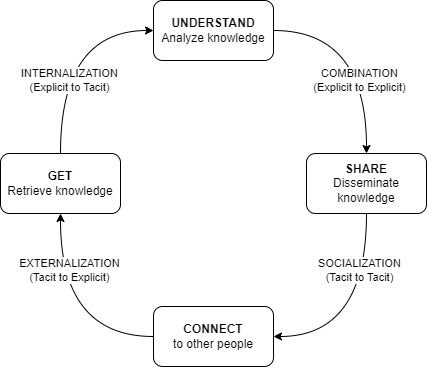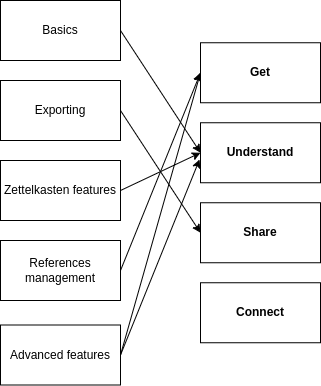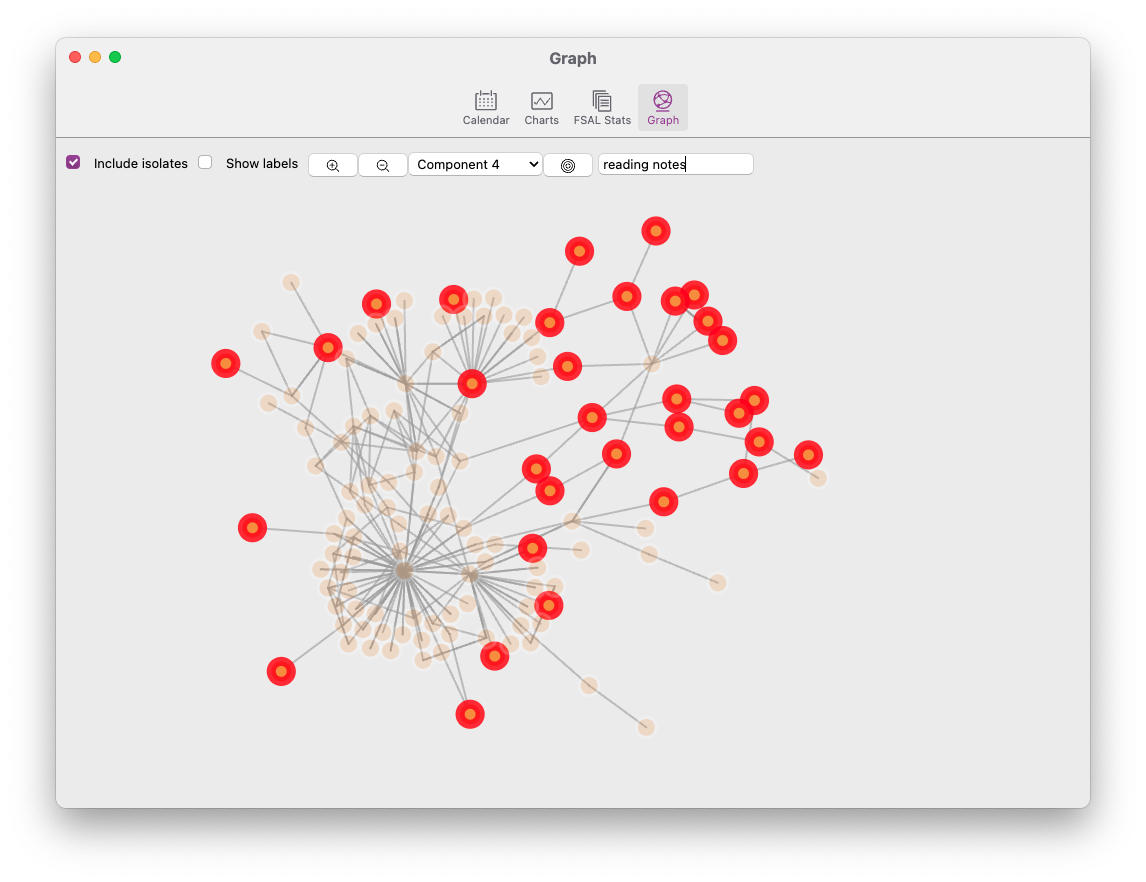The power of plain text
a.k.a. a gentle introduction to personal knowledge management using Zettlr
Goal and overview
Objectives
- Figure out why you should get familiar with knowledge management and content publishing
- Figure out the advantages of plain text and multi-format exporting
- Get familiar with
Markdownand basic exporting using a simple tool - Start to elaborate personal KM practices
- Experience how a tool like
Zettlrcan help with the PKM process
Overview
Have a look at what you can get with a bit of practical knowledge of plain text workflows (quarto) and GitHub: https://smart-edtech.github.io/smarties/
- Automatic build of the website
- Multi-format exporting avairable
Basics
Raison d’être of Personal Knowledge Management (PKM)
- We live in an information society. We are overloaded with information of diverse nature and quality.
- There is more than information overload: tools overload, social overload and reference overload.
- Most individuals are passive against these concerns. However, the digital medium has its very own characteristics we need to embrace to develop a personal.
What is PKM?
PKM is the field that precisely studies that issue: how, as individuals, can we thrive in the informational age? How can we make the most out of information technologies without feeling overwhelmed?
A plethora of tools
Notion, Roam, Tana, Obsidian, Logseq, AnyType, Affine, TiddlyWiki, Zettlr…
- Local vs Web-aware vs Web-based
- FOSS vs Freeware vs Paid
- Specific ↔︎ Extensible ↔︎ Malleable
- User-friendly?
Advantages of plain text editing
- Lightweight: you can work with just a simple text editor. You can store your files anywhere.
- Easily readable and writable: a whole range of apps work with plain text. It is also easy to manipulate programmatically.
- No lock-in: you can use your text files in different apps for different purposes. You can switch to a new app that better fits your needs seamlessly.
- Teaches you about computing and the hacker mindset in a hands-on way.
Meet Zettlr
Zettlr is:
- Designed with simplicity in mind
- Free and Open-Source
- Web-aware
- Supported by a community (
Discord,Reddit) - Specific but plays nicely with other tools (bibliography, export)
Install Zettlr
- Simply go to the official website: zettlr.com/download
- Install and open it.
- If you write academic articles, you will need
LaTeXat some point. Simply useMikTeX(this is not the point today).
Markdown syntax
# Section heading## Subsection heading…This is
_emphasized_and this is**strong**This is a
- List itemThis is a
1. Numberred itemThis is a
[link](https://zettlr.com)This is an
YAML: metadata and options
Basics and Exporting
- Create a new file
- Fill it up with some headings and content.
- You have some shortcut icons (e.g. links and images)
- Left pane: files explorer
- Right pane: outline and more
- Export button: select one of the available formats (except
LaTeX)
Diving deeper
Key skills in PKM
- Management
- Lifelong learning
- Communication and interpersonal skills
- Technological fluency
- Forecasting and anticipating
Key skills in PKM (cont’d)
- Use frameworks, models and conceptual tools to build upon your current KM practices.
- Implement PKM strategies using digital technologies.
- PKM practices are ultimately personal and evolving constructs.
- Reflect about the process, iterate, exchange with others
Some concrete insights
- Find an equilibrium between content consumption and content creation
- Move from note-taking to note-making: think about your notes, not just their content
- Showcase your learning: learn in public, build a digital garden
- View digital tools as opportunities to design new workflows
The GUSC model
We will use the GUSC model. It can be seen as a concretization of the SECI model.

→ A simple yet powerful model. We need to associate concrete actions to each phase.
The GUSC model in more details
- Get: gather information from different sources
- Understand: interpret, combine information into a (personal) whole
- Share: produce artifacts to make the learning process visible
- Connect: collaborate and exchange with others
Back to practice
→ We will see how Zettlr can help us implement strategies for the first 3 steps of the GUSC model (Get, Understand, Share).
GUSC in Zettlr

Get phase: referencing with Zotero and Zettlr
- Install
Zotero. You will manage all your references from here. - Install the
BetterBibTeXplugin forZotero - Export your
Zoterolibrary - Open it in
Zettlr - Type in
@and select one of your refs.
Example [@resnickLifelongKindergartenCultivating2017] and others emphasize the need to develop creativity in computing education.
[@morPracticalDesignPatterns2014] have developed design patterns for implementing technology-enhanced pedagogy.
References
Understand phase: Zettelkasten in Zettlr
A methodology to make sense of your notes.
Some insights:
- Use #tags.
- Link to other files, such as in [[about_tags]].
- Give unique IDs to files such as [[20231216180452]] Another file
Understand phase: the Graph view:
